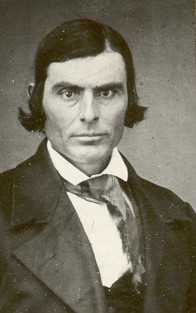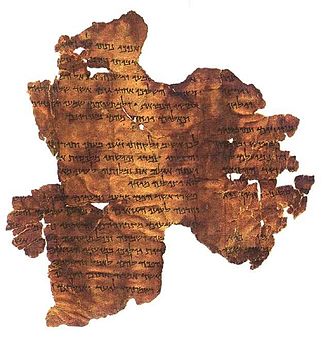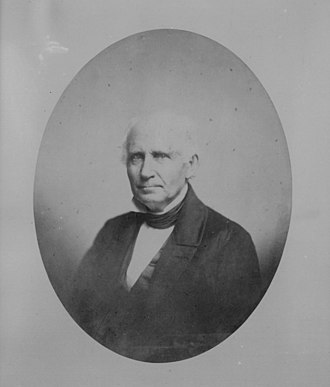Discover Your Roots
SIGN UPDiscover Your Roots
SIGN UPHosea is a male name of Hebrew origin, meaning "Salvation." In the Hebrew Bible, Hosea was an 8th-century BC prophet in Israel and the primary author of the Book of Hosea. The name is derived from a related verb meaning 'salvation' and was common in ancient times. Hosea conducted his prophetic ministries in the northern Kingdom of Israel. Little is known about his family or social status, but his marriage to Gomer symbolized Israel's unfaithfulness to God. In Christian thought, the relationship between Hosea and Gomer parallels the relationship between God and Israel, serving as a call to repentance. The name Hosea is commemorated in the Calendar of saints of the Armenian Apostolic Church and the Eastern Orthodox liturgical calendar. The tomb of Hosea is traditionally believed to be located in the Jewish cemetery of Safed. The story of Hosea has also been referenced in popular culture, including in video games, literature, and films.

Hosea Ballou D.D. (1771–1852) was an influential American Universalist clergyman and theological writer. Born in Richmond, New Hampshire, to a family of Huguenot origin, he was self-educated and devoted himself to the ministry, eventually becoming a prominent figure in the Universalist movement. Ballou's contributions to Universalism include preaching at various locations and serving as pastor of the Second Universalist Church of Boston from 1817 until his passing. He was also a high-ranking freemason and a prolific writer, having founded and edited The Universalist Magazine and The Universalist Expositor. Known as one of the fathers of American Universalism, Ballou authored theological works, hymns, essays, and sermons, with notable works such as "Notes on the Parables," "A Treatise on Atonement," and "Examination of the Doctrine of a Future Retribution." He is also recognized for his beliefs in divesting Universalism of Calvinism and opposing legalism and trinitarian views. Ballou's impact on Universalism and his legacy as a theological writer and clergyman continue to be celebrated.

Hosea Stout (1810-1889) was a prominent figure in the Latter Day Saint movement, known for his multifaceted roles as a soldier, lawyer, missionary, and politician in Utah Territory. Born in Kentucky, Stout's early exposure to the Latter Day Saints movement led him to actively participate in various significant events. He played a pivotal role in the Missouri Mormon War and later became a bodyguard for Joseph Smith. After the Latter Day Saints' migration to Utah, he continued to be involved in public service and politics, serving as the first Attorney General of Utah Territory and as a member of the territorial House of Representatives. Stout also embarked on missions to China and Hong Kong, although these were ultimately unsuccessful. Despite facing accusations and legal challenges, he left a lasting legacy in the development of Utah. His contributions to the Latter Day Saint movement and Utah's political landscape solidify his place as a significant figure in American history.

Hosea 1, the first chapter of the Book of Hosea in the Hebrew Bible, features the prophecies attributed to the prophet Hosea, son of Beeri. This chapter symbolically portrays the spiritual infidelity of Israel. It is part of the Book of the Twelve Minor Prophets and is divided into 11 verses in English Bibles. The chapter is structured with a title and two main sections: The Family of Hosea and The Restoration of Israel. The superscription sets the context of Hosea's prophecy during the reigns of various kings in Judah and Israel. Hosea's activities occurred mainly in the second half of the 8th century BCE, spanning approximately 69 years. He was a contemporary of prophets like Isaiah, Amos, and Micah. The chapter also mentions the children of Hosea's marriage with Gomer. Manuscripts of this chapter have been found among the Dead Sea Scrolls and translated into Koine Greek as the Septuagint. Hosea 1 provides valuable historical and prophetic insights into the religious and political landscape of ancient Israel and Judah.

Hosea Hudson (1898–1988) was an influential African-American labor leader in the Southern United States. Born in Wilkes County, Georgia, he worked as a sharecropper before moving to Birmingham, where he became a steel-mill worker and a local union official. Hudson was an active member of the Communist Party and dedicated his life to fighting racist oppression and economic exploitation. He played a pivotal role in organizing the Right to Vote Club, which helped African Americans register to vote despite the systemic intimidation they faced in the segregated southern states. Hudson's commitment to the civil rights movement and his advocacy for minority enfranchisement have left a lasting impact. Despite facing expulsion from the Birmingham Industrial Union Council and being blacklisted as a communist, Hudson persevered in his activism. His autobiography, "Black Worker in the Deep South: A Personal Record," sheds light on his remarkable journey. Hudson's story has been featured in various publications, including books on the Civil Rights Movement and the Communist Movement in the United States. His legacy continues to inspire and educate people about the struggles and triumphs of the African-American community in the Deep South.

Hosea Ballou II (October 18, 1796 – May 27, 1861) was an influential American Universalist minister and the first president of Tufts University. Born in Guilford, Vermont, Ballou was the son of Asahel Ballou and Martha Starr, with ancestral ties to one of the original incorporators of Harvard College. He married Clarissa Hatch and they had seven children. Ballou advocated for the establishment of seminaries for religious training, a stance that initially conflicted with some prominent Universalists, including his uncle Hosea. Throughout his career, he edited and wrote for various Universalist publications and also served as a member of the Harvard Board of Overseers from 1843 to 1858. Privately educated, Ballou received honorary degrees from Harvard, including a Master of Arts in 1844 and a Doctor of Divinity in 1845. His notable writings include "The Ancient History of Universalism, from the Time of the Apostles to the Fifth General Council" and "Counsel and Encouragement: Discourses on the Conduct of Life." Ballou's legacy continues to be celebrated, and his papers are preserved at the Harvard Divinity School Library.
All images displayed on this page are sourced from Wikipedia or Wikimedia Commons.We use these images under their respective Creative Commons or public domain licenses. Wherever applicable, author attributions and license information are provided. If you believe an image is used incorrectly or outside its license terms, please contact us so that we can review and correct the issue.